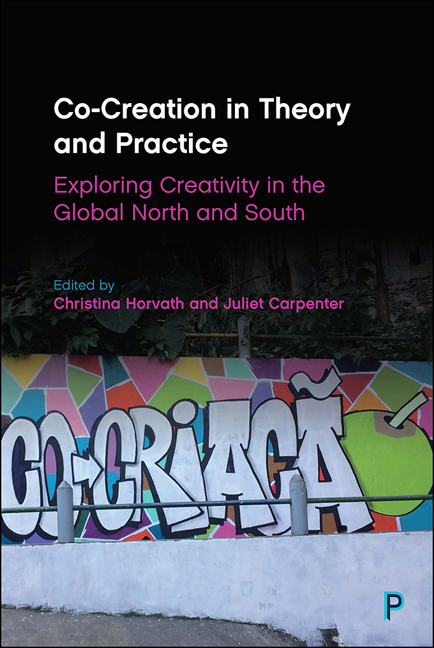6 - Co-Creation and Bridging Theory-Method Divides
Published online by Cambridge University Press: 18 March 2021
Summary
Introduction
This chapter explores the possibilities and challenges posed by Co-Creation as a knowledge practice that is more than a ‘novel method’ for addressing urban inequality, disadvantage and territorial stigmatisation. Co-Creation is informed by a diverse range of disciplinary practices, theoretical traditions and ways of collaborating with communities, artists and academics. The chapter draws on examples from the authors’ own and others’ work that explores the affective relations of stigmatisation, place and urban inequality through Co-Creative, participatory methods. This methodological banner of ‘Co-Creation’ has been cited across a range of disciplines, such as children's geographies (Stephens et al, 2014), management and business studies (Voorberg et al, 2015), health care research (Gill et al, 2011; Zanetti and Taylor, 2016), urban and culture research (Carpenter and Horvath, 2018), feminist research (Ringrose and Renold, 2014) and educational studies (Bovill et al, 2011). Across these disciplines, Co-Creation is commonly thought of as moving beyond tokenistic participation and guided by fundamental notions of participation, praxis, collective creativity and knowledge exchange between two or more individuals that continues throughout the inquiry and design process.
In this empirical research, the conceptualisation of Co-Creation is supported by an inclusive approach, whereby young people were invited to contribute insights through the relational production of knowledge. Young people contributed their insights throughout the design process – from initially exploring ideas and questions relevant to them in their community to trialling and selecting creative practices to tell their own stories and experiences of moving through everyday spaces. This study involved creative, arts-based practices to explore the social practices that young people enact through the affective and material contexts of their everyday lives (their ‘embodied mobility’). In this project there was no ‘artist’ involved, as both young people and the researcher were understood to be actively Co-Creating knowledge through a range of arts-based research practices.
The authors’ particular interest lies in exploring Co-Creation as a new materialist approach to creative, participatory research. This chapter draws upon Depper's empirical PhD research, which used arts-based practice and knowledge exchange to engage with young people (aged ten to 17), families and local practitioners (health, childhood and family services) in the exploration of inequality, affect and embodied mobility in a large town in the South West of England.
- Type
- Chapter
- Information
- Co-Creation in Theory and PracticeExploring Creativity in the Global North and South, pp. 87 - 102Publisher: Bristol University PressPrint publication year: 2020

